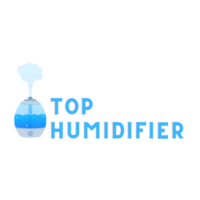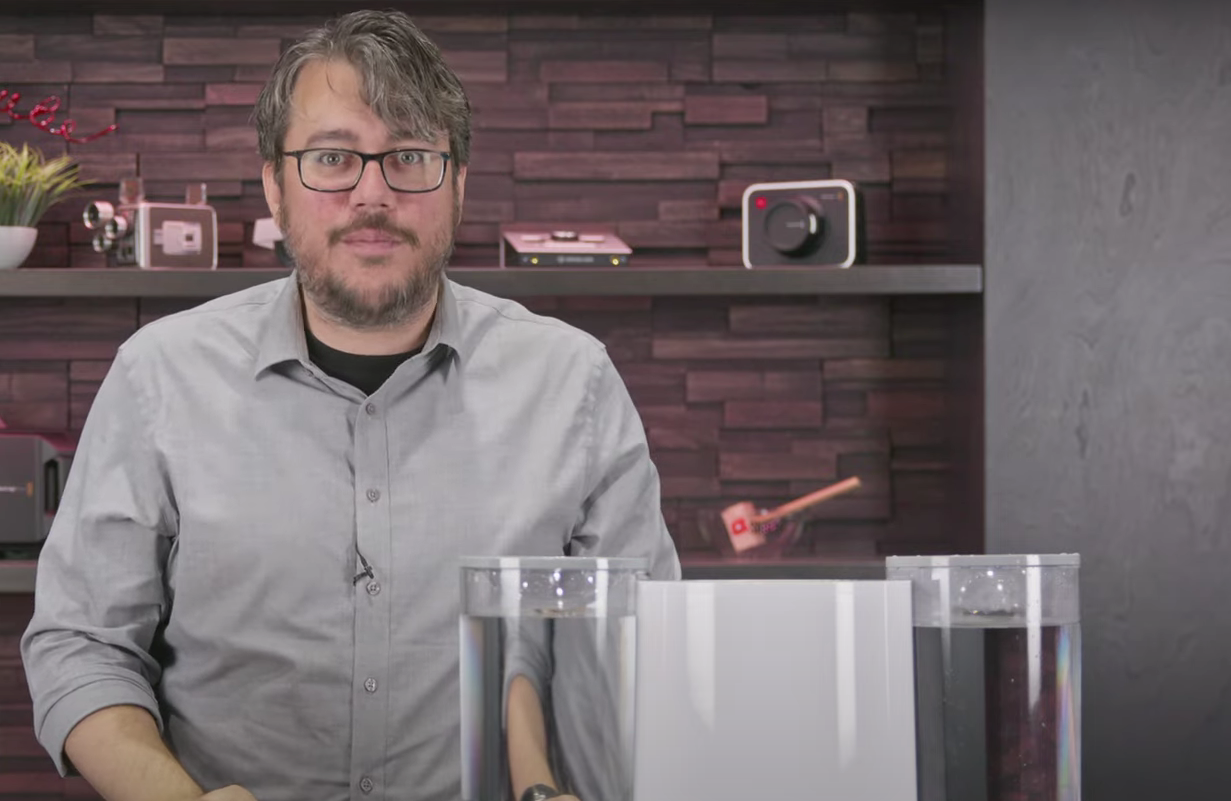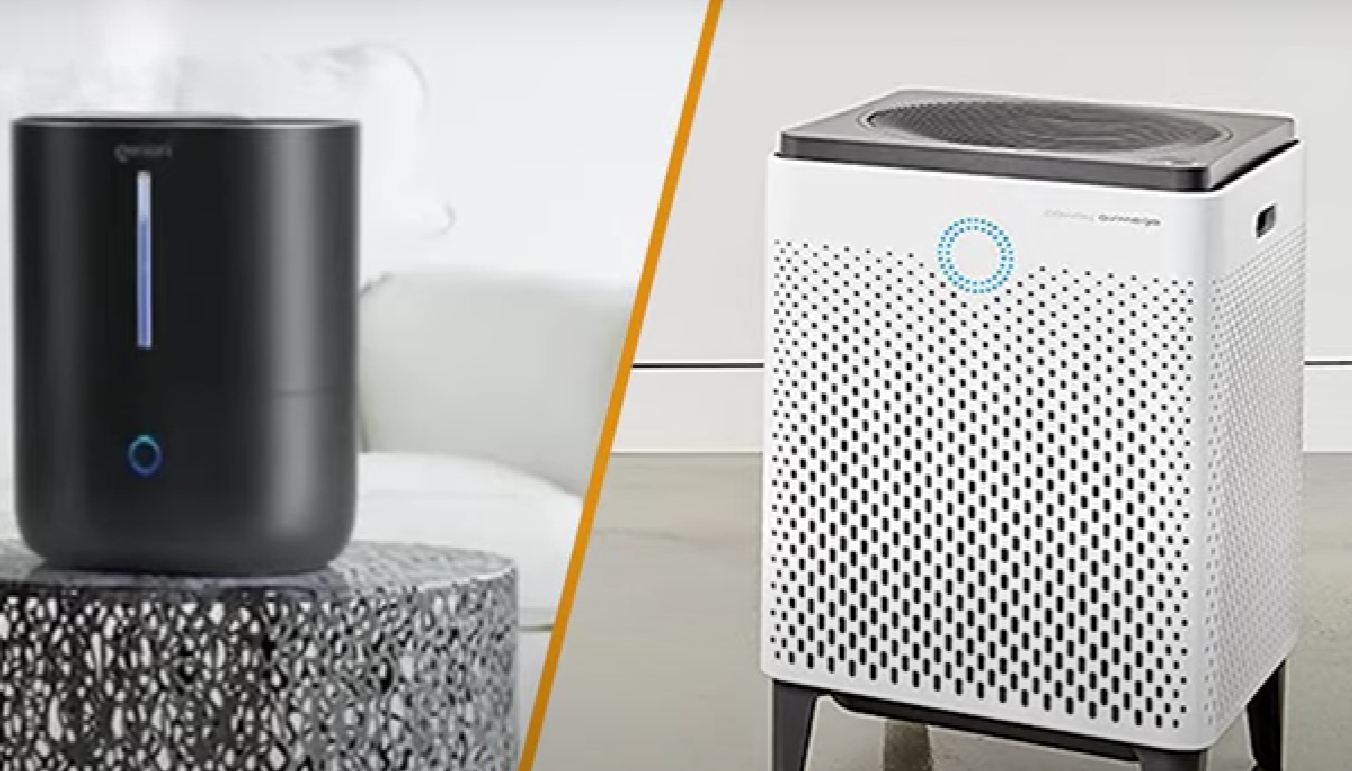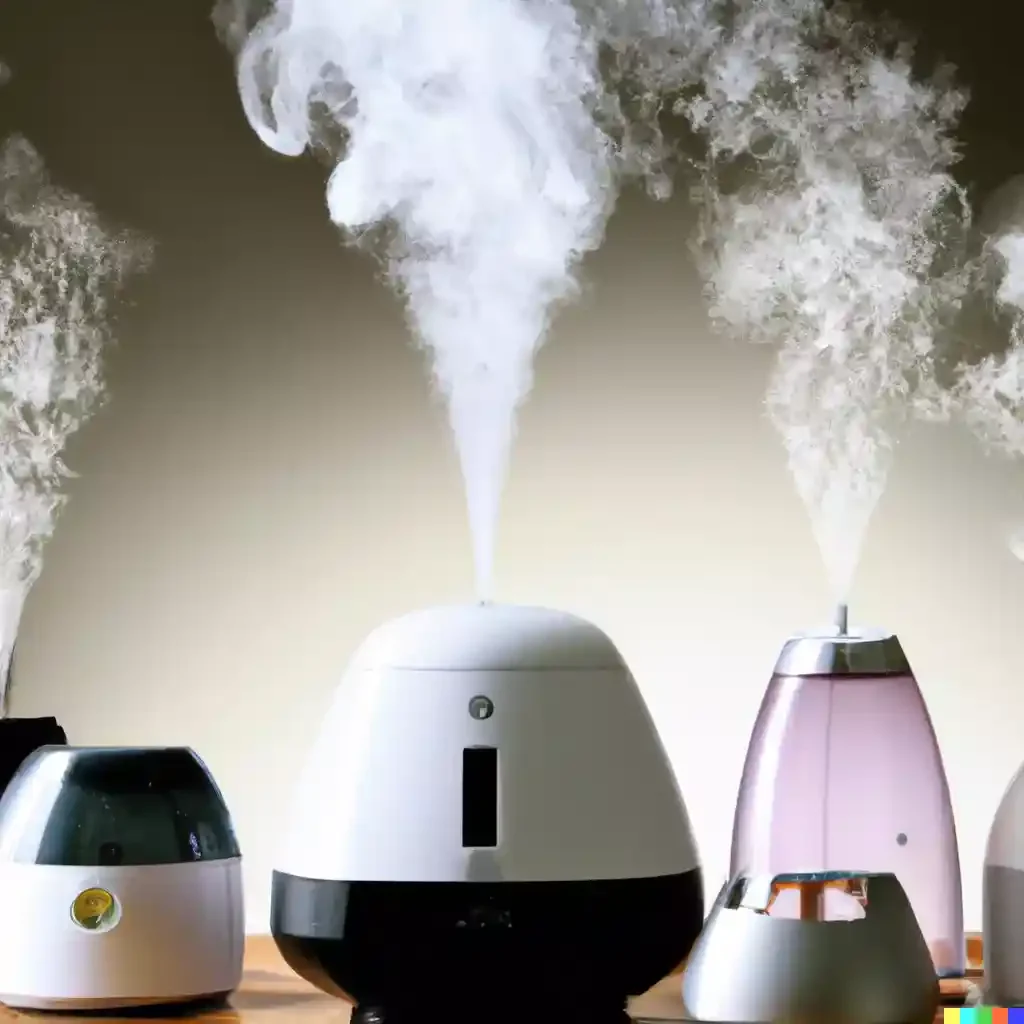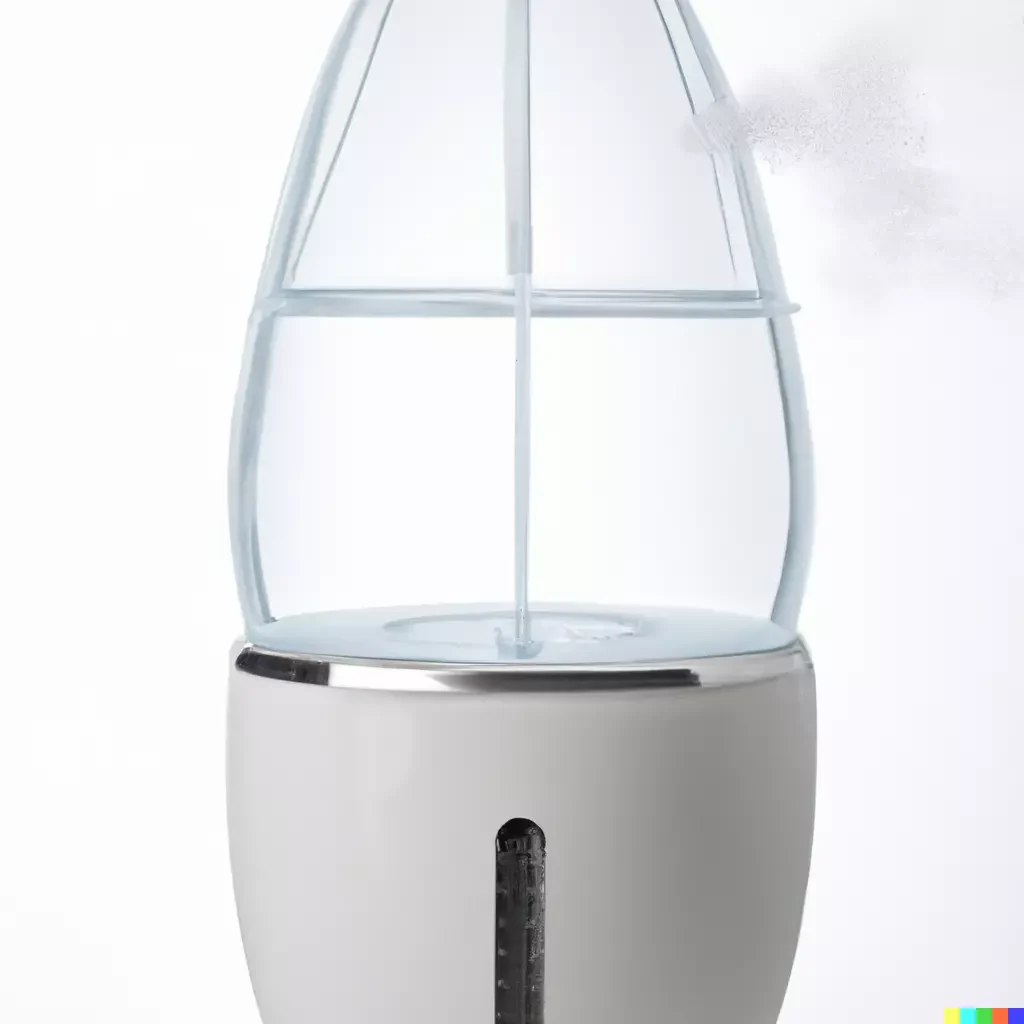As we spend a significant portion of our lives indoors, the quality of the air we breathe in the comfort of our own homes is of utmost importance. With the ever-increasing concerns about pollutants, allergens, and the general well-being of our indoor environment, the spotlight on devices like air cleaners and humidifiers has never been brighter. But which of these two stalwarts is right for your home? Let’s delve into the intricacies of air purification and humidity control to help you make the best decision.
The Pulverizing Power Of Air Cleaners
Air purifiers come in various forms, each designed with one common goal: to rid the air of impurities. Be it the omnipresent dust particles, pesky pet dander, or microscopic allergens, air cleaners are adept at their job, ensuring that the air you breathe is as clean as it can get.
A Closer Look At Air Purifier Technologies
- High-Efficiency Particulate Air (HEPA) Filters: Renowned for their ability to trap particles down to 0.3 microns with 99.97% efficiency, HEPA filters are the gold standard in air purification.
- Ionizers: These devices emit charged ions that bond with airborne impurities, making them heavy enough to fall out of the air and be vacuumed or dusted away.
- Ultraviolet (UV) Air Purifiers: Employing UV-C light, these purifiers destroy the genetic core of particles like viruses, bacteria, and mold, effectively neutralizing their ability to reproduce.
The Multifaceted Benefits Of Air Cleaning
The multifaceted benefits of air cleaning extend beyond mere purification, encompassing a spectrum of advantages that enhance both health and overall well-being. Efficient air cleaning not only removes allergens, dust particles, and pollutants, fostering a healthier respiratory environment, but it also contributes to the reduction of airborne pathogens, promoting a hygienic living space. Additionally, improved air quality can have positive effects on cognitive function and productivity. By creating a cleaner, fresher atmosphere, air cleaning technology becomes a holistic solution, positively impacting not only the physical health of individuals but also the overall quality of life within the enclosed environment.
How Air Purifiers Work?
Air purifiers employ a combination of filtration and/or air-cleansing technology to constantly cycle and clean the indoor air. This cycle not only removes pollutants but also helps maintain consistent air quality.
The Humidifying Hero: A Boost Of Moisture To Your Air
If dry air is your nemesis, then a humidifier could be the answer to your prayers. Humidifiers serve to restore balance, infusing just the right level of moisture into the air for optimal conditions.
Diverse Humidifier Varieties
- Evaporative Humidifiers: These units contain a wick filter that draws water from a reservoir, and a fan blows dry air through the moistened filter to release water vapor into the environment.
- Ultrasonic Humidifiers: These use ultrasonic vibrations to produce a fine mist. They tend to be quieter and consume less energy than evaporative models.
- Steam Vaporizers: These units heat water to produce steam, which is cooled down through the unit’s dispersal system, adding moisture to the air.
Drawing The Humidity-Oriented Benefits
From providing relief for dry skin and sinus discomfort to preventing the detrimental effects of overly dry air on wooden furniture and musical instruments, the benefits of a humidifier are far-reaching.
The Inner Workings of Humidification
The inner workings of humidification involve the deliberate dispersal of water vapor into the air, elevating the humidity level within a space. This process goes beyond mere comfort, as the resulting moistened atmosphere holds transformative benefits. Beyond creating a more pleasant environment, increased humidity proves beneficial for respiratory health, particularly in addressing congestion and allergies. The added moisture aids in relieving respiratory discomfort, making breathing more comfortable and supporting overall well-being. In essence, the intricate mechanism of humidification serves not only to enhance immediate comfort but also as a valuable ally in promoting a healthier and more breathable indoor atmosphere.
Comparing Apples to Oranges: Air Cleaner vs. Humidifier
When faced with the decision between an air cleaner and a humidifier, it’s essential to delve into the specifics of their intended functions and evaluate your unique requirements. These devices, although distinct in their purposes, play crucial roles in improving indoor air quality and comfort.
Emission And Elimination: How To Decipher What You Need?
Air cleaners operate on the premise of elimination, diligently working to remove harmful particles and pollutants from the air. Equipped with advanced filtration technologies such as HEPA filters, they act as vigilant guardians against allergens, dust, and contaminants. On the other hand, humidifiers focus on emission, releasing moisture into the air to combat dryness. This function proves invaluable, especially in environments prone to low humidity, as it helps alleviate issues like dry skin, irritated respiratory passages, and static electricity.
Understanding the distinct nature of these functions is crucial in determining the right solution for your specific concerns. If your primary objective is to rid the air of allergens and pollutants, an air cleaner with effective elimination capabilities is the preferred choice. Conversely, if you’re grappling with the discomforts of dry air, a humidifier’s emission of moisture becomes the key solution to restoring a balanced and comfortable indoor environment.
Identifying The Right Partner for Your Home
Choosing the right home companion involves considering specific concerns. For allergies or air contamination, a robust air cleaner with HEPA filtration is crucial. If dryness is the main issue, a reliable humidifier provides essential moisture. The choice between these devices caters to unique needs, enhancing overall home comfort and well-being.
Go With The Flow: Making A Choice Based On Context
In making a thoughtful choice, it’s crucial to consider key factors such as the size of your space, climate conditions, and the current air quality. These considerations play a central role in determining whether an air cleaner or a humidifier will have the most significant impact on you and your household. The size of your space influences device coverage, climate conditions address specific challenges, and evaluating existing air quality directs your focus to the device that best suits your indoor environment. Choosing wisely based on these contextual factors ensures an optimized and healthier home environment.
In Conclusion: A Fresh Breath of Clarity
Your indoor air quality isn’t up for debate—it’s a critical aspect of your daily life and health. Air cleaners and humidifiers are not mutually exclusive; rather, complementary tools to address distinct facets of your home’s air environment. Each offers unique benefits, and the right choice depends on a thoughtful assessment of your circumstances.
In the end, the investment in a cleaner, more balanced indoor atmosphere is priceless. So, whether you’re aiming to banish airborne irritants with precision or simply seeking the gentle touch of added humidity, making an informed decision now will pay dividends in the long run. Breathe easy, for the power to improve your home’s air quality is in your capable hands—whether filtered through a purifier or softened by a humidifier, the right choice can make all the difference. So, why wait? Choose the perfect air cleaner or humidifier today and enjoy the benefits of clean and balanced indoor air for years to come. Happy breathing!
Additional Resources
- For more information on how to choose the right air purifier for your home, check out this air purifier buying guide.
- To learn more about the benefits of humidifiers, visit this humidifier information page.
- For tips on improving your home’s air quality, read through these recommendations from the EPA. So, don’t stop at just purchasing an air cleaner or humidifier—continue to educate yourself and take steps towards creating a healthier and more comfortable living environment for you and your loved ones. Together, we can all breathe easier. Happy purifying and humidifying! #BreatheEasy #CleanAirMatters Disclaimer: This document is for informational purposes only and does not constitute medical advice. Please consult a healthcare professional for any concerns regarding your respiratory health. %End of Text%
In addition to air cleaners and humidifiers, there are other ways to improve the quality of your indoor air. Some simple steps include regularly changing air filters, keeping the area clean and clutter-free, and using natural cleaning products. Proper ventilation is also essential in maintaining good indoor air quality. Opening windows and doors to let fresh air circulate can make a big difference. Plants are another great way to naturally purify the air in your home.
Going Beyond Your Four Walls: The Impact of Outdoor Air Quality
While air purifiers and humidifiers can greatly improve the air quality within your home, it’s also important to pay attention to the outdoor air quality in your area. Pollen, dust, and pollution from factories or traffic can all contribute to poor outdoor air quality. Checking local air quality reports and avoiding outdoor activities on high pollution days can help reduce exposure
Regular maintenance and mindful practices pave the way for the longevity of your air quality devices and the sustainability of a healthy living space. For air cleaners, routine filter replacement is critical to ensure they function at their optimum efficiency. Likewise, cleaning your humidifier’s reservoir and employing distilled water can prevent the growth of mold and bacteria that could otherwise pollute your indoor ecosystem. Remember, proactive care for your air quality equipment is just as crucial as the initial decision to purchase them.
Frequently Asked Questions For Air Cleaner vs. Humidifier
What is the primary function of an air cleaner?
An air cleaner is designed to remove airborne particles, pollutants, and allergens, enhancing overall air quality by employing various filtration technologies.
How Does A Humidifier Work, And What Is Its Main Purpose?
Humidifiers work by releasing moisture into the air, counteracting dryness in the environment. Their main purpose is to maintain optimal humidity levels, alleviating issues like dry skin and respiratory discomfort.
When Should I Choose An Air Cleaner Over A Humidifier, And Vice Versa?
Opt for an air cleaner if you are concerned about allergies, asthma, or air contamination. Choose a humidifier if dryness is a predominant issue, especially in dry climates or during winter.
Can An Air Cleaner Help With Respiratory Issues?
Yes, air cleaners, particularly those with HEPA filtration, can effectively remove airborne particles, making them beneficial for individuals with respiratory issues.
Do Humidifiers Contribute To Better Indoor Air Quality?
While humidifiers primarily address dryness, maintaining balanced humidity levels can indirectly improve indoor air quality by preventing issues related to excessively dry air.
Are There Specific Situations Where Both An Air Cleaner And A Humidifier Are Recommended?
Yes, in environments where concerns about both air quality and dryness coexist, using both an air cleaner and a humidifier can provide comprehensive solutions to enhance overall indoor comfort.
Can These Devices Be Used Together In The Same Room?
Yes, air cleaners and humidifiers can be used in the same room to address different aspects of indoor air quality, creating a more balanced and comfortable living space.
How Do I Determine The Right Size Of An Air Cleaner Or Humidifier For My Space?
Consider the square footage of your space when selecting a device. Choose an air cleaner or humidifier that matches or slightly exceeds the size of the room for optimal effectiveness.
Are There Any Maintenance Requirements For These Devices?
Both air cleaners and humidifiers require regular maintenance. Air filters in cleaners need replacement, and humidifiers need regular cleaning to prevent the growth of mold and bacteria.
Can These Devices Be Harmful If Not Used Correctly?
Improper use or neglect of maintenance can potentially lead to issues. For example, a dirty humidifier may release harmful particles, and a neglected air cleaner may become less effective. Follow the manufacturer’s guidelines for safe and effective use.
